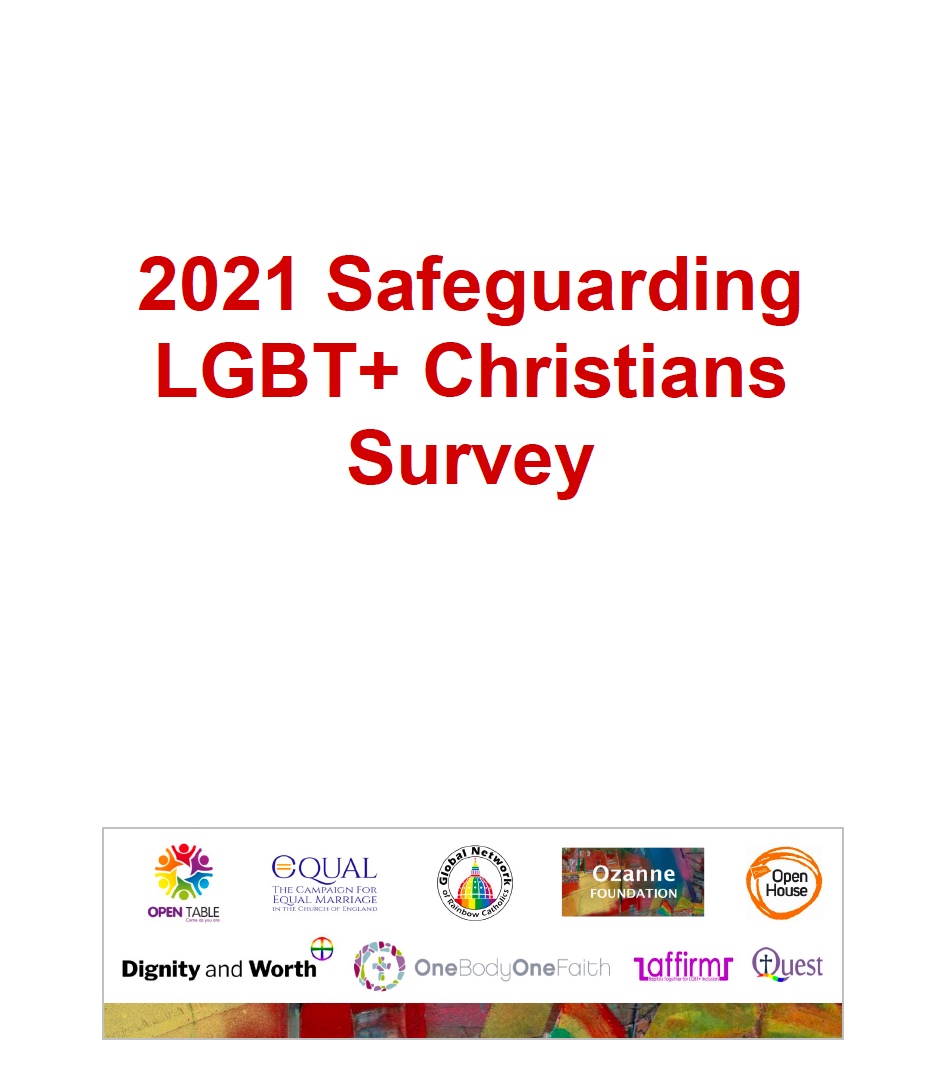Results from LGBT+ Christians survey
A new survey has revealed how unsafe many LGBT+ Christians feel to be themselves in their regular places of worship
 The 2021 Safeguarding LGBT+ survey ran on Survey Monkey for two weeks from 10 Oct 2021, which was both World Mental Health Day and Safeguarding Sunday in the Church of England.
The 2021 Safeguarding LGBT+ survey ran on Survey Monkey for two weeks from 10 Oct 2021, which was both World Mental Health Day and Safeguarding Sunday in the Church of England.
It was led by nine LGBT+ organisations, including the Baptist group Affirm, and overseen by an independent research consultant, Dr Sarah Carr. The aim of the survey was to understand how safe LGBT+ Christians feel in UK churches, what “safe” means in this respect, whether the situation is getting better or worse and what steps can be taken to help them feel safer.
It was open to all LGBT+ Christians over 18 in the UK, and gathered more than 750 responses. Nearly 60 per cent of the respondents were from the Church of England, with approximately 10 per cent (70 people) from a Baptist background.
The survey found that only a third “feel safe to be out” in their local churches and one in five feel “safe to be out to the wider Christian community”.
A fifth of respondents said they feel “apprehensive” when attending their local church with less than a third (31 per cent) saying they could “be themselves”.
Many respondents felt that whilst their churches take their “physical safety” seriously they indicated that their “spiritual”, “sexual” and “emotional” safety was taken far less so.
The survey showed what safety means for LGBT+ Christians. When asked what it meant to feel “safe to be yourself in your church”, three quarters of LGBT+ Christians chose “I’m not worried what might be said in the sermon” and “I can be open with the clergy about my sexuality and/or gender identity”.
The most significant factor that is currently helping LGBT+ people feel safe in their churches is being “aware that there are other LGBT+ people in our congregation” (52 per cent).
When asked what can be done to help them feel safer, nearly half (46 per cent) said “knowing that our leaders affirm same-sex relationships” alongside “putting an inclusive statement on the website” (41 per cent).
A quarter (26 per cent) agree that things are “a little safer” than five years ago and nearly a fifth (18 per cent) said things are “much safer”.
The independent research consultant, Dr Carr, who specialises in mental health and social care research, said in the foreword, ‘The findings show that fear and anticipation as well as experiences of hostility and discrimination can make churches feel unsafe, exclusionary environments where many LGBT+ people state they “feel scared to be themselves”.
'Whilst there was a recognition that churches focused on physical aspects of safeguarding, attention to emotional and psychological safeguarding was found wanting - which the findings imply are just the type of safeguarding LGBT+ Christians need.’
Jayne Ozanne, Director of the Ozanne Foundation, who organised the research, said, ‘This research shows just how vulnerable LGBT+ Christians feel in our churches. The fact that so many are apprehensive about attending church and are worried about what might be said in the sermon should come as a serious wake-up call to church leaders. It’s time we took the wellbeing of LGBT+ people in our care seriously and look at ways in which we can help them feel safe.’
Access the full report here.
Baptist Times, 08/02/2022